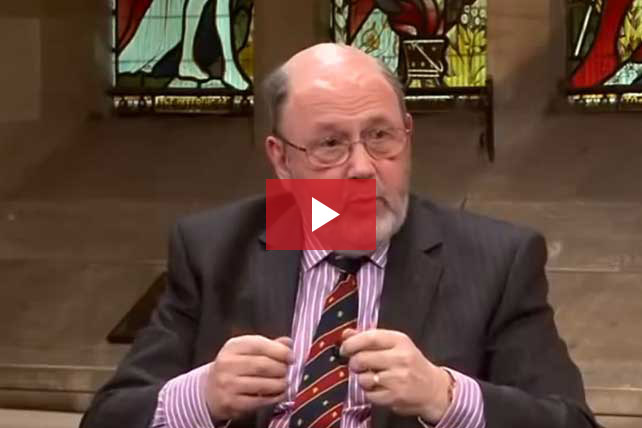In a particularly poignant scene in Albert Camus’ “The Plague”—which reads like it was published three weeks ago because of the pandemic, instead of in 1947—the doctor works tirelessly to lessen the suffering of those around him. But he is no hero.
“This whole thing is not about heroism,” he says. “It may seem a ridiculous idea, but the only way to fight the plague is with decency.”
Isn’t that what this pandemic is teaching us again?
It’s decency that matters. Kindness. Community. Interdependence, not independence is what makes healing possible. We are interconnected, so let’s live like it.
I have a long and loving relationship with the song, “Lean on Me.” It started when the song was selected as the theme for a high school youth retreat. We repeatedly sang the lyrics, “We all need somebody to lean on”—forever stamping in our brains the truth of that message.
Much of the Bible emerged in times of conflict and crisis, so it’s no surprise that songwriters like the late Bill Withers and poets perhaps say best what we need to hear. Take, for instance, one of my favorite socially conscious poets, Richard Blanco, in a poem he wrote titled, “Declaration of Inter-dependence:”
“We’re a Buddhist serving soup at a shelter alongside a stockbroker. … We’re each other’s shelter and hope: a widow’s fifty cents in a collection plate and a golfer’s ten-thousand-dollar pledge for a cure. … We’re the good morning of a bus driver who remembers our name, the tattooed man who gives up his seat on the subway. … We’re the promise of one people, one breath declaring to one another: I see you. I need you. I am you.”
Words like those above can help and heal. Words—and the ideas they transmit—can also harm and hurt.
A pandemic makes this even more obvious.
In times of crisis, unhealthy theologies proliferate, harming most especially the most vulnerable. Take, for instance, the ministers claiming to speak for God while actually speaking words of hate and blame. They take God’s name in vain by identifying catastrophic events with God’s will or the direct action or reaction of an angry God.
All of us, including the authors of Scripture, seek an explanation for why bad things happen to good people and good things to bad people. We want the universe to make sense. We want a blame when there is misfortune, a cause when there is punishment, and a reason when there is reward.
In fact, parts of Scripture have this acts-consequences understanding of rewards and punishments. Do good, get good; do bad, get bad.
Other parts of Scripture turn this notion on its head. Think Job, the quintessential good man, most righteous of persons who loses everything—children, wealth, social status, moral standing, everything. Job doesn’t just take it on the chin; he protests his innocence, challenges superficial understandings of suffering, and even files a spiritual lawsuit against God.
Likewise, Jesus further challenges this notion, and even goes so far as to suggest, much to the chagrin of those who claim to be morally superior, that God’s love is for all. Not a certain nation or race or religion. All.
Maybe that’s the first reason that Jesus commands us to love our enemies: God loves them too. Notice that the very same sentence in which Jesus commands us to love our enemies goes on to say, “For God makes the sun to rise on the evil and the good, and sends rain on the just and the unjust alike.”
There’s also that time when Jesus was asked who sinned to cause a man to be born blind—the man or his parents—and he said none of them had. That is, there was no direct action-consequence.
So what to do in these days of pandemic as people of faith and good will? Blaming God is bad theology. Blaming others is worse, and it’s immature. Maybe we turn to ourselves, not for blame but for action.
In this, a poet can help us again. In her “Poem to the South African Women,” June Jordan writes this remarkable line that King and Mandela and others quoted, “We are the ones we have been waiting for.”
We are the images of hope and agents of compassion. We are the ones who can show decency and build community.
It strikes me that the ancient prophetic vision of human unity is now an urgent, pragmatic necessity. We all belong one to another. Our unity is not something we are called on to create, but only to recognize and to make manifest.
Recently we celebrated Easter Sunday, which means we are now in the Season of Easter. It’s a scary time, much like I’m told the original Easter was.
What new life might emerge from this pandemic and tomb of much death?
Whatever it is, I hope it is characterized by more decency. I hope it fully embraces that we are connected and that we need each other.
I hope it is life with leaders who realize that the world as a whole must be managed, not just its parts. No longer is the survival unit a single nation or a single anything. It is now the whole world – humans, other animals, and the environment.
After delivering a lecture, Madeleine L’Engle was asked, “Do you believe in God without any doubts?” L’Engle responded, “No, I believe in God with all my doubts.” She continued, “Those who believe they believe in God, but without passion in the heart, without anguish of mind, without uncertainty, without doubt, and even at times without despair, believe only in the idea of God, and not in God himself.”














